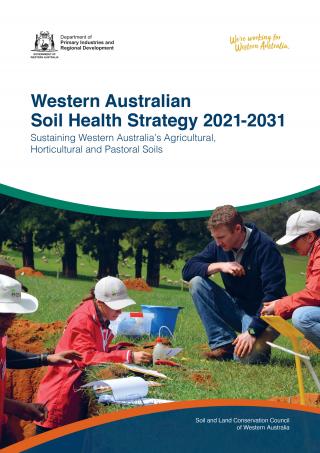The continued prosperity of Western Australia’s natural environment and primary industries depends on the health of our soils and increasingly, on community and market expectations for their sustainable management.
The Western Australian Soil Health Strategy sets the strategic direction that will guide policy, research, investment, and on-ground actions that support the management, protection, improve the partnerships and improvement of soil functions and associated ecosystem services for the next 10 years within WA. The Strategy reflects the high value that industry, communities, and government place on soil health and aims to:
- support landholders and service providers (researchers, consultants, natural resource management groups, grower groups and associations, government officers) to understand the guiding principles of soil health and to plan and resource their key activities appropriately
- support soil health management practices that provide environmental, economic, and social benefits to WA
- develop community-wide understanding of the overall policy direction and management of the state’s agricultural, horticultural, and pastoral soils
- identify the responsibilities of landholders and government in addressing emerging soil health issues and challenges, so as to prioritise future investment in soil health.
Significantly, this Strategy welcomes innovation, adaptation, and changes in farming systems and land management that can improve or sustain soil health. It recognises that different ideas, expertise, and experience will continue to drive innovation (by land managers, agribusiness, and advocates of regenerative agriculture and organic farming), serve the interests of Aboriginal people, and achieve investor-required sustainability standards in corporate agriculture.
This Strategy acknowledges that rigorous scientific and economic assessment will support ongoing development and adoption of emerging and new practices.
The plan will be overseen by the Soil and Land Conservation Council and delivered through the Department of Primary Industries and Regional Development, in association with key government, industry and community partners.

